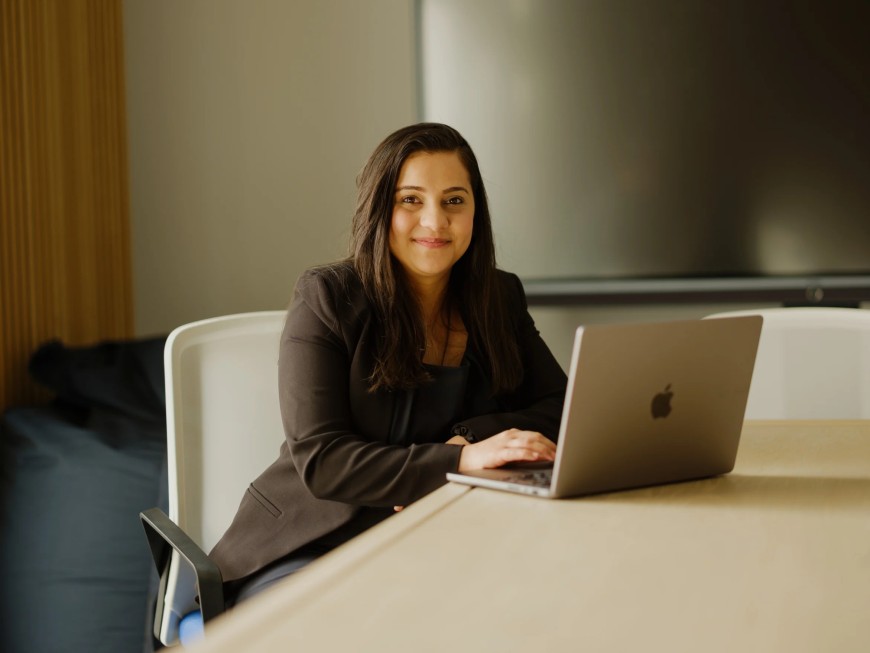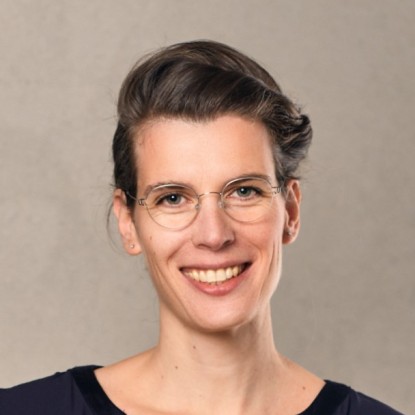A portrait of Athene Young Investigator Dr. Manisha Luthra Agnihotri
The Athene Young Investigator Programme supports outstanding researchers on their way to professorship
2025/09/17
Dr Manisha Luthra Agnihotri, Senior Researcher in Professor Carsten Binnig's research department 'Systemic AI for Decision Support' (SAIDE) and postdoctoral researcher in the Data and AI Systems group at the Department of Computer Science at TU Darmstadt, has been accepted into the Athene Young Investigator Programme at TU Darmstadt. The programme promotes the scientific independence of outstanding scientists at an early stage of their careers by enabling them to qualify for a professorship by independently leading a junior research group. We had the opportunity to talk to her and ask her a few questions.

What topics do you focus on in your research?
My research sits at the intersection of machine learning, systems, and real-time data — all aimed at making data processing smarter, faster, and more adaptive. I develop models that are generalizable to unknown changes and, at the same time, can predict how long data tasks will take before they even run, helping to optimize performance. One of the most exciting directions I am working on is building multimodal data systems, where I use large language models (LLMs) like GPT to analyze and interpret real-time data streams from multiple sources — like text, audio, video, or sensors — all at once. This kind of continuous, real-time understanding of complex data has never been done at scale before and opens the door to richer applications, from live event monitoring to real-time decision-making in healthcare and robotics.
Why should students be interested in your scientific subject?
Because you get to build the intelligence behind the scenes that makes systems actually work — and scale. This field is a thrilling mix of practice, engineering, and creativity. You will design methods that help data systems think ahead, build models that can generalize to the unknown, and even teach machines to understand multiple data types in real time. It’s fast-moving, high-impact, and full of opportunities to innovate.
How does your research intersect or interface with other faculties?
My research is deeply interdisciplinary: it supports scientists and engineers working with real-time data from experiments, sensors, and simulations; it intersects with language and perception through the use of LLMs and multimodal data; and it raises important questions around efficiency, fairness, and transparency, tying into work in sustainability. I also collaborate on application areas like energy systems to contribute sustainable methods, and at the same time, where real-time data processing can help monitor and respond to changes in the environment or infrastructure.
Which professional milestone are you particularly proud of?
Being honored with the highly prestigious German national award from the Special Interest Group on Communication and Distributed Systems (KuVS) for my dissertation. This recognition highlighted the exceptional impact of my doctoral research on data stream processing and systems optimization and affirmed the national significance of my contributions to the field.
If I were a student today, I would…
…follow the sparks of curiosity — even if they lead outside the textbook. I would build things early, reach out to mentors, and not be afraid to mix fields or follow an unconventional path. Some of the best research ideas come from seeing familiar problems in new ways.
The perfect balance to a stressful working day is …
…stepping away from the screen — ideally into nature, a kitchen experiment, or a conversation with friends. Those moments of calm often spark the next big idea



